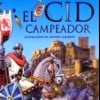Keywords in Title
Hello
I am looking for information from the more experienced writers who know about Keywords.
When I have a long tail Keyword in the title of a hub does it negate the one or two word Keyword?
For example:
How To Cook Ground Beef Recipes / Beef Stew / Mince Meat Stew
My main Keyword is Ground Beef = 9720 searches a month at $2.04
My 2nd Keyword is Ground Beef Recipes = 162,000 a month at $. 34
Do the search engines recognize both of these as they are written in this title.
Also what do you recommend as the best sentence divider in the title?
As you can see I use the Forward slash here /. Is this the best one
Thanks
Lorraine'Ground Beef' has 24,300,000 competing webpages and 'Ground Beef Recipes has 14,500,000. I think you really need to narrow down the subject of your Hub to something more specific if you ever want to rank it on search engine results.
Hello Writer Fox
Mmmm Yes I see what you mean. Those figures are a bit of a shock. I know I should have checked that part in my keyword research too. But I am still learning and open to any advice.
So Writer Fox It would be better to use less searched for keywords and more specific?
Something like these
Easy Vegetable Beef Stew Recipe 1,700,000
Best Ground Beef Stew Recipe 2,100,000
Easy Healthy Ground Beef Recipe 6,000,000
Thanks
Great question, something I've thought about a lot. My understanding is that you can rank for multiple keywords and keyword phrases. Which means you could get traffic for the keywords and long-tail keyword phrase; but it depends on competition, etc.
At any rate, Google picks up on both; the couple words keywords and the long-tail phrase,etc.NateB11, Thanks for the info, I wasn't too sure so it is great to have it confirmed
LorraineIn terms of separating words and phrases in the title, I've read that the symbol | is good to use. There is a logical reason, which I can't remember what that reason is right now, but at the time I was researching it, it made enough sense for me to start using the symbol. I believe it has to do with what the search engine reads; my understanding is that it doesn't read the colons, for instance. Not sure how it reads the | symbol.
I have heard pipes | are the best in titles, but things have a way of changing.
Here's some good and, I think, reliable information on the subject: http://blogs.iit.edu/iit_web/2013/04/01 … nderscore/
According to the piece, pipes separate two phrases and give equal weight to the first word of the title and to the first word after the pipe; first words in title hold more weight for the search engine. Both phrases on either side of the pipe have equal value.
Then the article goes into more detail about what the other symbols--commas, colons, dashes--do. Basically, they don't seem to give the separated keywords equal value, among other things.
Thanks for asking this question,there are many useful tips from successful hubbers that benefit people like me that are SEO illiterate .
I have written a number of articles about this. Niches and keyword optimization for getting a reasonable chance of success against the competition is the 'holy grail' of article writing. The best tool IMO is Jaaxy(dot)com. It offers a free trial, after which a subscription is required. It shows the various keyword options and provides stats for them. It includes a 'traffic lights' (red, amber, green) overall Keyword Quality Indicator (considering expected traffic and competition). The KQI is also shown as a score out of 100. An extract from Jaaxy is shown. 'crockpot ground beef recipes' is the most competitive with the highest rank.
[ Note 1: there are 30 phases on the page, only a few are shown - it also suggests lots of other alternatives.
Note 2. There are other tools that produce similar reports].
Including other phrases in the title is a good idea as Google will rank for all the phrases and combinations (but you have to write about them, of course). However, the Google bot is smarter now with Semantic Search (see my article about this). So you could use:
Crockpot Ground Beef Recipes - Low Calorie Minced Beef Options
[Note; the only separators I suggest you use in the title are dash '-' and comma ',']
Thanks. I haven't heard of this site before.
Thank you janderson99
i will try this site and see how it is. I would not be able to use the word Crockpot because I made the stew in an ordinary pot. But there are other options there.
I will certainly read your articles on the subject too.
The divider is still a niggling problem though. Thanks for your input. I will see what other writers suggest before I decide whether to change the titles on my articles. The - would look better than the / that i use but would it be better for the traffic?
LorraineI suggest not using "/" or "\" as these are reserved for navigation, designating folders etc. Just use commas and dashes IMO.
My two cents - if you use the / and just list alternatives, without making it a proper sentence, then it's going to be obvious to moderators that you're keyword stuffing and that could get your Hub unpublished.
The pipe | is the flavour of the month as a separator now, but obviously you need to construct your titles differently to use that.
I am confused.
Long-tail keywords/title or "keep it short and simple." I've heard both sets of advice.- calculus-geometryposted 9 years ago
0
If you're using more than one slash or divider you're probably keyword stuffing.
The most weight is given to the words at the start of your title, so you are more likely to rank for instance for the "How To Cook Ground Beef Recipes" than "Mince Meat Stew" which will be seen as less relevant. Probably less searches also (not checked).
Why would you want to rank for "Ground beef"? Do you sell ground beef? Think about the user intent when they are searching for specific phrases - if your page does not answer the user intent then it will be a bad experience for the user and they will likely just click straight back to the search results. That will likely get your hub ignored by good ole Google.
If your searches are too broad the chances are that you will be facing stiff competition. The more you can specialize the better; "Quick ground beef recipes", "Low fat...", "Low calorie..", "Tasty...", "... for the single man", "...for beginners" etc.. Yes lower searches but less competition. If you do a series of similar recipes then you may get recognition for that area of cooking ("Minced beef" or "..for beginners" etc.)
The best way to check the competition is to actually search and check what you are up against, don't just rely on a tool or a count of the number of pages that mention your keywords. Look at the quality of the pages that are ranked on the first page of Google; if they are all long established recipe sites do you think that a lone web page on HP will compete?I see what you mean Leanman
I have written many recipes here on HubPages quite a few when I first arrived 4 years ago. I have changed them to keep up with Google over time.
The idea of ranking for ground beef was to get my recipes that were made with it up there further in the search engines. Thanks to the many writers who have answered my questions including yourself I see now that I was doing it wrongly.
I will look at all my recipes now and decide which specific words to add to the title. Like easy, healthy, quick, vegetarian etc.
Thanks for your input
lorraineI think the main point to take away is that each of your phrases need to stand alone - so in your original title, don't expect Google to link "How to Cook" with "Beef Stew".
Here is an example of a long-tail title:
The original title, also appearing on its own in the URL was:
"Hanging Upside Down"
Later, when I knew more about long-tail titles, I expanded the title and used pipes as follows:
Hanging Upside Down | Cure and Prevent Back Pain | Benefits of Gravity Inversion
Each section separated by pipes can be searched for as a separate title.
Today the hub scores 100.
So in your case, perhaps you could add certain unique ingredients, that people search for, to your recipe title?I have not used pipes before. In fact, this is the first time I have heard of it. Looking at your example, you really need to show that they are interrelated and have strong connections. You are not just stuffing keywords.
Great explanation and example of how pipes and keyword phrases work. Clarifies it well.
Related Discussions
- 39
High ratings but no traffic?
by Pilar M 4 years ago
Can anyone help me figure out how to best optimize my hubs? I have several that have scores of 90 and above but they hardly get any views...I'm not sure how I could improve that. Even ones that have been changed by Hubpages' editors still don't get much traffic. Is it just the titles that I should...
- 67
I found keyword with no competition but massive traffic
by Gary Anderson 8 years ago
But I am wondering why there seems to be competition in the real google world and no competition showing for it in the external keyword tool world?
- 76
Some Search Engine Help For More Traffic
by Thomas Byers 4 years ago
I thought I would start publishing some search engine tips to help everyone to get some extra hits from the search engines.1. Long TailDo you know what the Long Tail is. Its where you use a 3-5 word title for your Hub and you can find some long tail titles that you can rank very well for. You would...
- 21
keyword question
by saleheensblog 13 years ago
I have found two different schools of experts in the internet who have two completely different thoughts on choosing keywords but both have got success in their own style.1. select high/extremely high traffic keywords. The need to do much back linking.2. select low traffic but more specific, easy...
- 133
Puttin' my Fancy Shmancy SEO Learnin' to Use!
by Earl Noah Bernsby 10 years ago
I can here the snippers approaching.Snip, snip.Snip.
- 26
Something I Just Discovered about titles and URLS
by yoshi97 14 years ago
For a long time it has puzzled me how one of my hubs keeps doing great, when it shouldn't. You see, I started a hub on one topic and then changed my mind in the middle of it.Now, back then I had no idea you couldn't change the URL later, so I was horrified when I was stuck with a URL that couldn't...


















